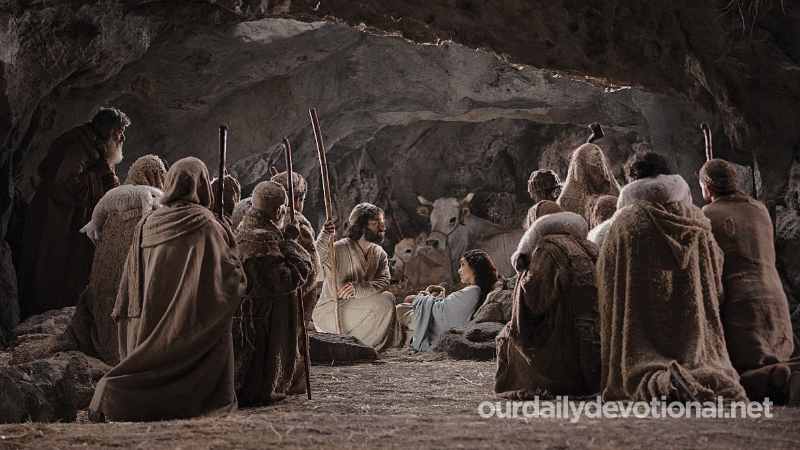"the people have become great" or "he who has made the people great." Son of King Solomon and Naama, an Ammonite woman, one of his wives (1 Kings 14:31). Rehoboam, the son of a wise father, was not very sagacious. Upon the death of Solomon, in 931 BC, representatives of the twelve tribes met in Shechem, in the center of the country, to proclaim Rehoboam king, the legitimate heir to the throne.
The rivalry, due to more or less ancient causes, tended to distance Judah from the northern and eastern tribes. (See BIBLICAL HISTORY c, C and JOSHUA.) The people, who suffered from the excessive taxes demanded by Solomon, requested relief on the occasion of the accession of the new monarch. Jeroboam, the spokesman of the people, had held an important position in the previous reign, and the prophet Ahijah had announced to him that he would reign over ten tribes (1 Kings 11:28-40).
Rehoboam made the people wait for three days to hear his answer, and he asked advice from Solomon's elder advisors. They recommended that he accede to the demand of the people, who would not fail to show him their gratitude.
But Rehoboam followed the advice of his own generation, his childhood friends, and gave a harsh answer to the people: “My father made your yoke heavy, but I will add to your yoke; My father punished you with whips, but I will punish you with scorpions" (whips armed with metal tips).
These words reveal Rehoboam's presumption and foolishness. When they then separated from the young king, ten of the twelve tribes renounced from that moment on supporting the house of David. The people stoned Adoram, who had been in charge of collecting taxes.
Rehoboam, fearing the same fate, hurriedly returned to Jerusalem (1 Kings 12:1-20; 2 Chron. 10:1-19). Judah, a large part of Benjamin, and those of Simeon, remained faithful to the sovereign. Rehoboam then gathered his chosen troops to fight against the rebellious tribes, but the prophet Shemaiah managed to dissuade him from doing so (1 Kings 12:2124; 2 Chron. 11:1-4).
Rehoboam then dedicated himself to fortifying the cities of Judah and Benjamin, and providing them with provisions (2 Chr. 11:5-12). When his rival erected golden calves in Bethel and Dan, the priests and Levites took refuge, almost entirely, in Judah, and helped to establish the throne of Rehoboam; However, three years later Rehoboam himself gave himself over to idolatry (1 Kings 14:21-24; 2 Chron. 11:13-17; 12:1).
In the fifth year of Rehoboam's reign, Shishak (see PHARAOH, c) invaded Judah, took fortified cities, seized Jerusalem, and plundered the Temple and the royal palace (1 Kings 14:25-28; 2 Chron. 12: 2-12). Rehoboam had eighteen wives, sixty concubines, twenty-eight sons, and sixty daughters (2 Chron. 11:21). His son Abijah claimed that Rehoboam's initial failure lay in his youth and lack of experience (2 Chron. 13:1-12).
However, Rehoboam was 41 years old when he began to reign. He occupied the throne for 17 years, and died about 915 B.C., succeeded by his son Abijam or Abijah (1 Kings 14:21, 31; 2 Chron. 12:13, 16).
Meaning of RIZPAH
"the people have become great" or "he who has made the people great." Son of King Solomon and Naama, an Ammonite woman, one of his wives (1 Kings 14:31). Rehoboam, the son of a wise father, was not very sagacious. Upon the death of Solomon, in 931 BC, representatives of the twelve tribes met in Shechem, in the center of the country, to proclaim Rehoboam king, the legitimate heir to the throne.







